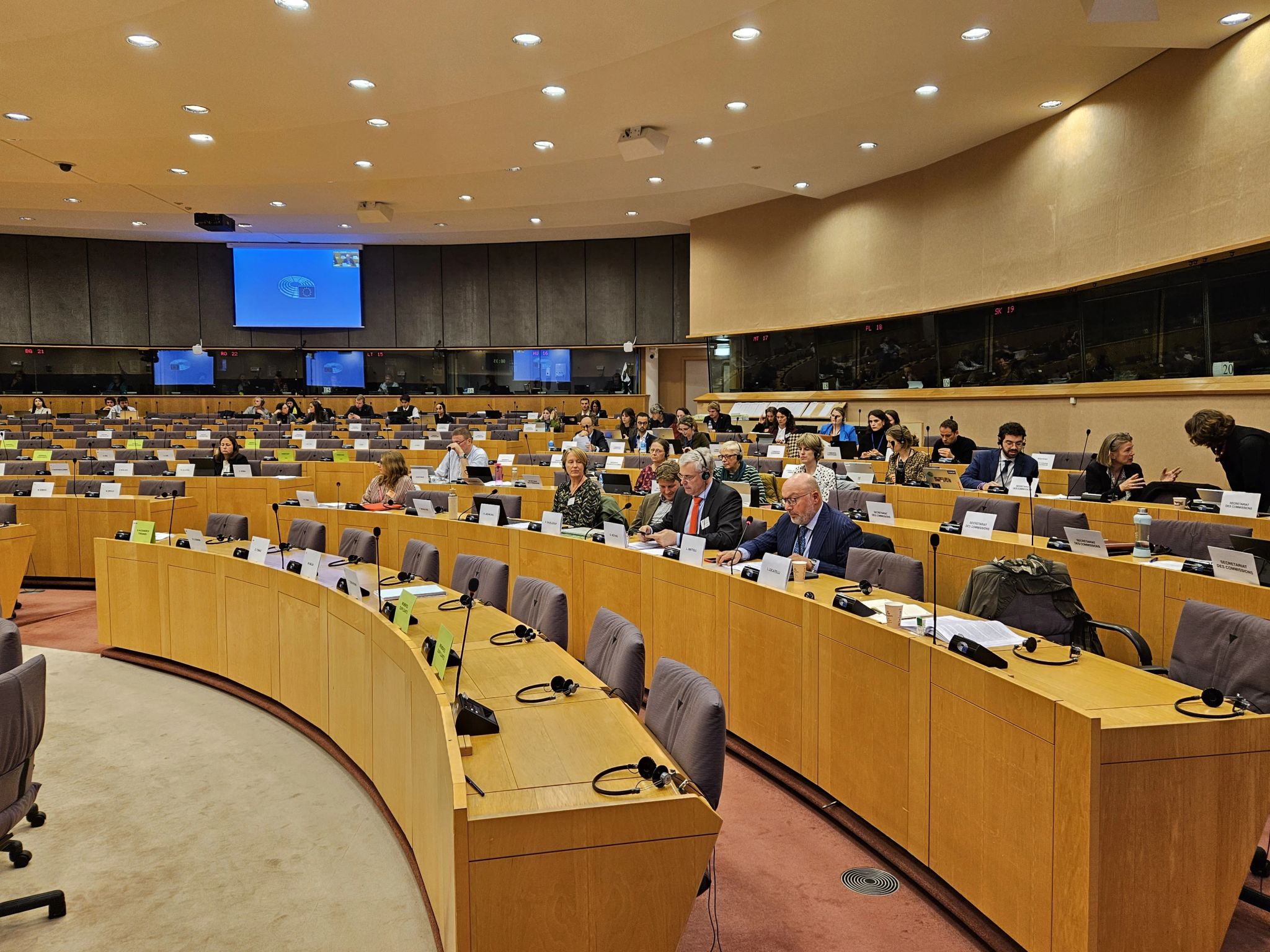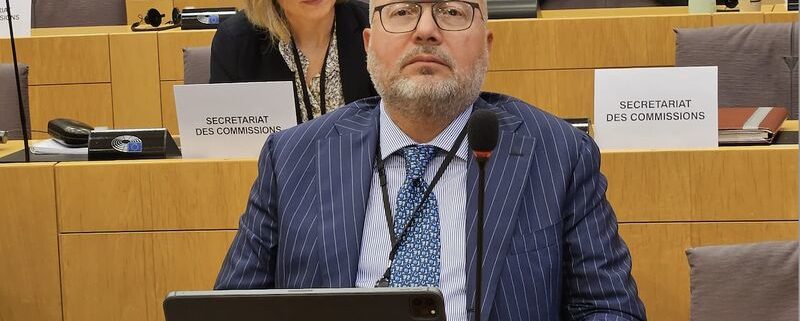On Wednesday 25 October EFCI has participated in the hearing, organized by the Employment and Social Affairs Committee of the European Parliament (EMPL) to discuss the findings of a report on the social impact of the current public procurement provisions. For the first time, EFCI has been given the opportunity to present its views before the Members of the European Parliament on an issue of fundamental importance for the sector.
Following the invitation of the President of the EMPL Committee, MEP Dragos Pislaru, EFCI President took part last Wednesday 25 October in a hearing of the European Parliament on the social impact of the 2014 public procurement directive. At the center of the exchanges, the presentation of a report commissioned by the EMPL Committee, investigating how the current provisions of the directive have contributed (or not) to the achievement of more social objectives through public procurement.
Following the presentation of the report by its authors, different speakers have taken the floor: prof. Schulten from the Hans-Bockler Stiftung, Dr. Jaerhling from the Duisburg-Essen University, Mr. Skjellerup from the Municipality of Copenhagen and Mr. Rothig, Regional Secretary of UNIEuropa –the trade union counterpart of EFCI in the sectoral social dialogue.
In his contribution, Mr. Mattioli emphasized the following key points:
Economic Impact: Public procurement significantly influences the cleaning industry, contributing up to 50% of turnover in some countries. This not only sustains financial health but also shapes market conditions for private clients.
Labor Costs Challenge: With labor costs exceeding 80% of the industry’s total expenses, recent inflationary trends, particularly in salary adjustments, present financial challenges, impacting the sector’s overall landscape.
Directive Gaps: The 2014 public procurement directive lacks clarity on price revision mechanisms, leading to varied regulations across Member States. Companies struggle to recover increased salary costs, operating at a loss, and facing sustainability concerns.
Advocacy for Change: EFCI, alongside stakeholders, advocates for explicit guarantees in the directive, enabling Member States to revise public contract prices. This push aims to ensure companies can recover increased costs, upholding service quality and employment standards.
Financial Dimensions: A presented study highlighted concerns about financial conditions in tender awards. Despite the “best quality-price ratio” principle, tenders often prioritize the lowest price, potentially compromising service quality.
Call for Professionalization: The study emphasized Member States’ tendency to award tenders solely based on the lowest price, underscoring the need for improved technical capacity and enforcement. Public authorities play a crucial role in fostering professionalization among contracting authorities.
As the industry adapts to these challenges, ongoing discussions, including the upcoming November 14 event on public procurement, will shape the future of the cleaning industry. Stay tuned for updates in our commitment to navigate this evolving landscape.
Hearing of Lorenzo Mattioli, EFCI President, before the EMPL Committee of the
European Parliament, 25 October 2023
Dear President Pislaru, esteemed ladies and gentlemen,
First and foremost, I extend my sincere gratitude for the kind invitation to be here today. It is truly a pleasure to represent the European Federation of Cleaning Industries (EFCI) and engage in a dialogue on such a crucial matter.
As the President of EFCI, I stand before you to shed light on the significant role our industry plays in the European landscape. EFCI proudly represents over 300,000 companies, predominantly small and medium-sized enterprises, employing more than 4 million people across 13 countries. Our essential work in industrial cleaning and facility management, as highlighted by a recent Eurofound study, proved instrumental in reuniting Europeans safely after the challenges posed by the pandemic. Our sector’s paradox lies in its almost complete invisibility; people notice when our work is not done correctly, yet the essence of cleanliness remains largely unseen.
I would also like to acknowledge Mr. Rothig from UNIEuropa, with whom we share a constructive relationship in the sectoral social dialogue. Our joint efforts in the realm of public procurement, as reflected in a signed declaration and a letter to Commissioner Breton, underscore the value of social dialogue in achieving common goals.
Public contracting holds a central position for our industry, constituting up to 50% of our turnover in certain countries. Its influence extends beyond direct financial impact, shaping the practices of other client types. In a sector where labor costs are the highest among labor-intensive industries, our social commitment is deeply rooted in providing opportunities for people with diverse backgrounds and low qualifications, serving as a gateway to legal employment and social integration.
Turning to the study at hand, I commend the authors for their meticulous analysis and the detailed examination of implementation patterns at the national level. While acknowledging the adequacy of the current Directive’s provisions, I share the surprise expressed in the study regarding the prevalent use of the lowest price criterion in awarding tenders by the majority of Member States. The responsibility of public authorities is evident, and the study rightly emphasizes the need for increased professionalization of contracting authorities.
However, the study, from our perspective, falls short in adequately addressing the financial dimension of public procurement. Despite the emphasis on the “best value for money” principle, tenders are overwhelmingly awarded based on the lowest price. In an industry where labor costs represent a significant portion of total industrial costs, the focus on price undermines our ability to provide high-quality services and optimal employment conditions.
Recent years have witnessed a shift to a high inflationary macroeconomic scenario, leading to rapid salary increases. While such adjustments are common across industries, sectors dependent on public procurement face a threat due to the lack of provisions for price revisions in awarded contracts. To ensure the sustainability of our industry, we advocate for a legal foundation at the directive level, allowing companies to recover cost increases imposed by factors like wage hikes.
The European Commission sets an example with its “contrat cadre de services,” incorporating a mechanism to review prices based on salary adjustments agreed upon by sectoral social partners. This practical approach should serve as a model for the future directive.
In conclusion, I propose a shift in focus from adding new obligations on companies to creating conditions that ensure business continuity, optimal working conditions, and the delivery of high-quality services. Rather than burdening businesses, let us empower them to uphold the highest standards while navigating the evolving economic landscape.
Lastly, I extend an invitation to an event on November 14, where we will join forces with social partners from the private security and catering sectors to discuss the impact of European public procurement legislation on our industries and explore possible ways forward.
Thank you for your attention, and I am at your disposal for any questions or further discussions.




